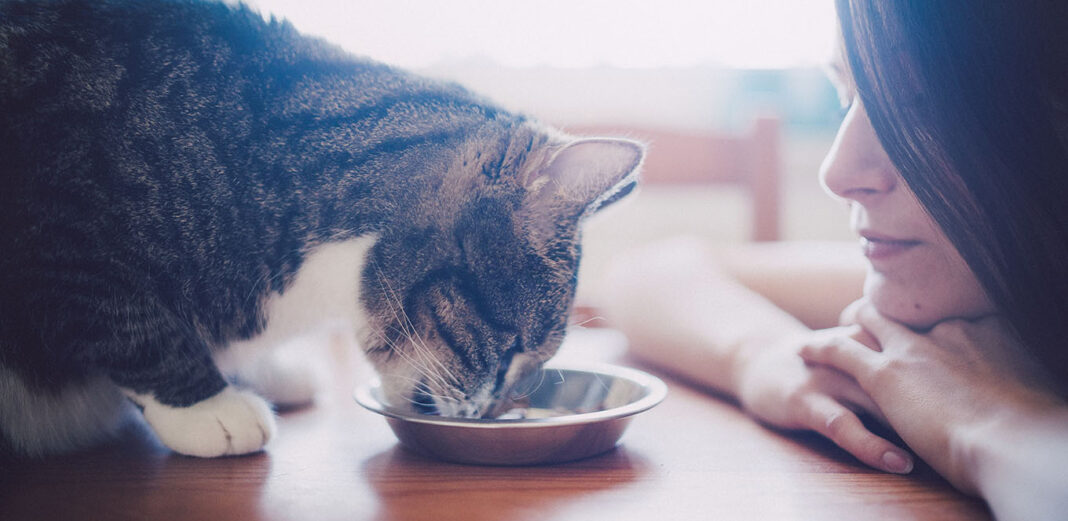Note: This post contains affiliate links, when you purchase a product or service through one of these links we may earn a commission on that sale.
The internet is crowded with information on what constitutes a good diet for your feline friend. You must have seen cats gorge on fish or lap up a serving of milk, making you wonder that those make for great cat food. Trust us; they don’t! Yes, we know it’s very confusing, and to help you find your way through this maze of confusion and feed your cat what it loves and what it needs, we share with you some vital information.
Your cat’s age should decide what you should feed it. Here’s what you should feed your cat at its different stages of growth.
Kittens
While you can serve cooked or raw meat to your kitten occasionally for variety, the primary food for your kitten should ideally be high-quality, premium commercial kitten food that offers it an adequately balanced diet. A balanced diet is essential at this stage since the cat is still growing its bones and joints. You should avoid serving raw meat to your kitten before the 20th week as their immune system is yet to be strong enough to digest pathogens. We suggest strips of raw beef to remove plaque from its teeth.
Cooked bones are a strict no-no as these may splinter, causing severe internal damage. Some moist food is good for your kitten’s health as it improves urinary tract health. The size, weight, and breed of your kitten matter a lot. Therefore, it’s always advisable that you consult a veterinarian.
Adult Cats
As in kittens, the primary food for an adult cat should also be branded commercial food of premium quality. Make it a point to check on the package what age of cats the food is meant for. Seek your veterinarian’s help if you have any doubts. Adult cats like kittens prefer some variety in their food. Fresh or cooked meat or fish make for a good meal occasionally. Meaty bones or fresh meat give your cat the protein it needs, but make sure that the food is human grade as some of these products may contain harmful preservatives.
Senior Cats
It would help if you were very careful about the diet for your senior cat as it may have specific health issues which a lousy diet may aggravate. It’s best to consult your vet. To help increase the fluid intake, serve them a canned, fresh, or cooked wet diet. The helpings should be decided by the cat’s size and age and take care to find the right balance between overfeeding and underfeeding. Serve small quantities at frequent intervals as it ensures better urinary tract health.
Conclusion
Preparing a balanced diet plan for your feline friend is an absolute must for its good health. If you are unsure on what might be or might not be suitable for your cat, consult the vet. Our article on a proper diet for your at should enlighten you. Follow our advice and enjoy the sight of your cat purr in delight after a hearty meal.


